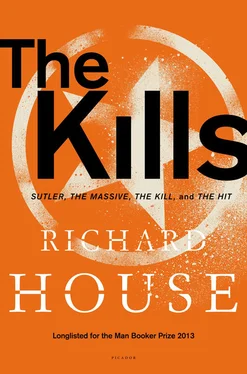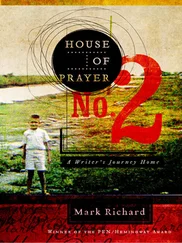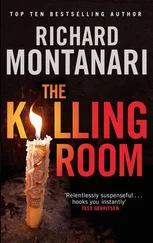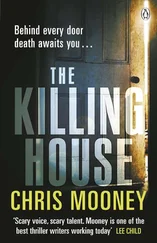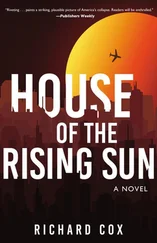Ford tucked the documents and the itinerary into his pocket.
‘Our business this morning was very small.’ Zubenko glanced from plate to plate. ‘I do not want any inconvenience to come out of this small business. Your cheques are already somewhere else, untraceable to you, untraceable to me, our business is concluded. The problem with the German will also be concluded as soon as you are on the boat. You can leave this city and no one will remember that you were here.’ Zubenko leaned forward and spoke clearly and not unkindly. ‘Do not think me impolite when I say that I have no interest in hearing from you or meeting you again. Go. Go away. Now. Goodbye.’
Ford rose to leave. Troubled, he asked what would become of the journalist.
Zubenko looked up, his eyes widening, his irritation deepening. ‘Nothing,’ he said. ‘He will come to no harm and he will cause no harm.’
4.5
For a while Grüner could see no purpose to Sutler’s wanderings. The man blundered about the old centre but missed the sights. The Hippodrome, the archaeological museum, the Galatea Bridge, the Blue Mosque, the Grand Bazaar, all skirted, unnoticed, unvisited. He waited while the Englishman entered an American Express office but did not change money, from there he was sent elsewhere, to a Western Union, and then a smaller cash booth near the port, and so on, and so on, visiting in total, nine money changers. At the final place, a shop behind the old mercantile quarter, Sutler sat with a man, who appeared, without question, to be the fattest man Grüner had ever seen. When Sutler came out he was accompanied by two men: same mouths, same flat nose, almost certainly brothers, both shorter and younger than Grüner, who behaved like private security — quietly scanning the street as Sutler walked ahead. After a short walk the brothers slipped into a small supermarket and Grüner thought that he was mistaken.
As he passed the supermarket the two men stepped out and blocked his way.
‘Can we help you?’ The older brother spoke in English.
‘I’m sorry.’
The man switched with ease to German. ‘We were asking if you need help?’
Sutler walked ahead and looked to become lost among pedestrians.
The brothers smiled at Grüner.
‘Thanks, no, I’m fine. Thank you.’
The white of Sutler’s shirt became indistinguishable from other white shirts, other shoulders.
‘Are you looking for someone? Perhaps there is something that you want?’
‘No, I’m fine. Excuse me.’ Grüner held up his hands and again attempted to move on. The younger of the two men, who had not yet spoken, stood directly in his way. ‘I’m sorry?’
‘My brother is learning German. Please. Where are you from?’
‘Hamburg,’ Grüner replied. ‘Are you the police?’
Now uncomfortable, he pushed forward but could not make more than two steps without the men confronting him; a dance in which they remained close but did not touch.
‘I like Hamburg. In Hamburg they have a Christmas market. Not as good as the Christmas market in Trier, but a good market, and they have nice museums. Nothing that compares to our museums, of course, but nice and not to be ignored. I think you are looking for someone?’ The brothers blocked his way. ‘The man you were following? What interest do you have in him?’
‘You’ve made a mistake.’ Grüner looked the older brother square in the eye. If it came to trouble he thought that he would be able to handle himself, but he couldn’t be certain. ‘I’m not looking for anyone. I don’t want to buy anything. I am leaving now.’ He levelled his hand as a final gesture.
‘No.’ The older brother shook his head and showed a small silver knife in the flat of his palm. ‘You can come with us. Please.’
At the sight of the knife Grüner became completely compliant.
* * *
The men escorted Grüner to a cold-storage lock-up at the back of Cossack Travel. The younger brother quizzed the older brother as they strapped Grüner with duct tape to a small office chair. Was it possible, he wanted to know, that the Germans don’t have a sense of humour because the subject always comes at the end of the sentence so that everything sounds like a punch line? He asked the same question of Grüner.
Grüner complained that the tape was too tight about his stomach. He attempted to move his ankles, his wrists, he explained that he had money, but the brothers did not appear to listen. ‘I have allergies,’ he complained, ‘it’s very serious. To the gum.’ He spoke carefully, clearly, made his case without emotion, hopeful that his rational calm would convince them. At school he could hold his breath until he fainted, and he wondered if now would be a good time to pass out.
‘See, this is a case in point. This is my point exactly. It was a joke and he didn’t understand.’
Undeterred Grüner attempted to speak in Turkish. ‘What are you going to do?’
‘You speak Turkish?’ The older brother looked slightly alarmed.
‘I am a journalist,’ Grüner answered, still calm. ‘I work in the Middle East. I speak four languages. I speak Arabic and I speak a little Hebrew. I speak English and French, and I was following a man because he is wanted by American and British intelligence.’
‘But you just said something in Turkish? Is this the language you use to pick up boys?’
The sound of the younger brother zipping duct tape off the roll made it hard for Grüner to hear. Unsure he’d heard correctly, he repeated himself. ‘I am a journalist and I have to get back to my hotel. I am following a British man who is wanted by the police and by British and American military intelligence. It is very important that you let me go.’
‘You either speak Turkish or you don’t.’ The man leaned close and whispered in Turkish in Grüner’s ear.
‘I don’t speak Turkish. I am a journalist — and this man should not be allowed to disappear, it is very important that I follow him. You have to let me go. I will pay you.’
‘But I heard you speak Turkish.’
‘It was a small phrase. I don’t really speak — I mean I know a little — but I’m a photographer, a journalist, I don’t know much more than a few phrases.’
Done with binding him, the younger brother came to the front and Grüner worried that he would tape over his mouth. ‘So you speak a little Turkish?’
Grüner nodded in surrender. ‘I speak a little Turkish. I know a few phrases.’
‘Enough to pick up boys?’
‘Boys? Why are you asking about boys? I was following a man who is wanted by American intelligence.’
The brothers exchanged a glance.
‘Yes, you come here, you speak a little Turkish, and you pick up boys with the little Turkish that you can speak.’
Grüner rapidly shook his head, trying to rid the room of the idea. ‘I don’t pick up boys. I have a wife. I have a girlfriend. They are both women.’
But the man ran to his own chain of logic. ‘No, the only reason a German would learn Turkish is so that he can come to the country to pollute the flower of Turkish youth.’
Grüner shook his head more vigorously. ‘You aren’t listening to me. I’ve told you what I’m doing here. I am following a man called Stephen Sutler. Look at my camera. Look at the photographs.’
‘Is there something wrong with Turkish boys?’
‘No!’ Grüner rolled his head and began to shout. ‘Why have you brought me here? I have to go.’ He struggled to free himself but succeeded only in jogging the chair forward.
The brother started laughing. ‘I’m making a joke,’ he said, still laughing. ‘A simple joke! What is it about the Germans and their sense of humour? Should I tell you when I am joking? Maybe I will hold up my hand next time so you know? Hey, here it is, a joke! I am now making a joke!’
Читать дальше
